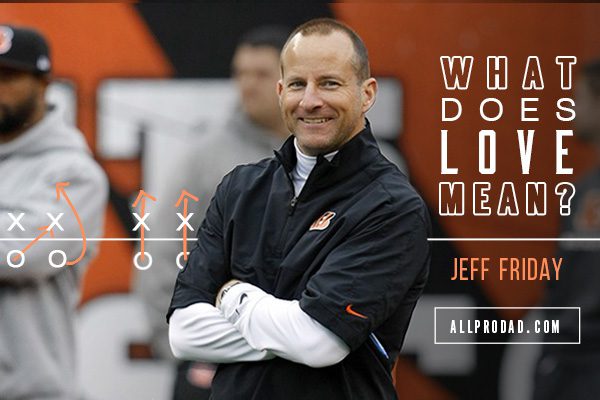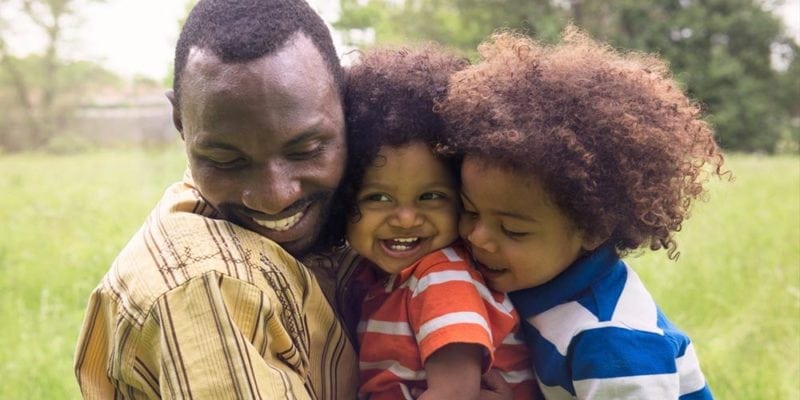Truly, truly, truly love. That’s the most powerful thing there is. Those are the words spoken by UCLA’s legendary basketball coach John Wooden at the age of ninety-nine shortly before his death. Love’s essence can be tough to grasp. Bookstores and shelves in homes are filled with books on what love is, how to love, what love does and does not do. Unfortunately, many miss the mark of real love. If you asked ten adults what love is, you’d probably get ten different answers.
Myths and Misunderstandings About Love
Love is the greatest, but it is also undoubtedly the most overused and underused, misapplied and misunderstood word in the English language. It is overused and misapplied with reckless abandon on most television shows and commercials you watch. Love is also underused and misconstrued in word and deed by husbands, wives, parents, children, grandparents, grandchildren, relatives, friends, and coworkers. Loving others doesn’t mean liking. We can love others without having to like what they do. My wife, Susan, and I, especially when we’re having a disagreement, will sometimes say to each other, “I love you. But I sure don’t like you right now.” What we’re really saying is, “I love you no matter what, but I don’t like the way you are acting right now.”
We apply the word love when we speak of things as well. We say, “I love my car.” “I love their french fries.” “I love that dress.” Sure, those things may be appealing and pleasing to one of our five senses—sight, hearing, taste, touch, smell—but it is not the right application of our love. We weren’t designed to love inanimate objects. Objects are not capable of receiving and giving love; only people are. If we attempt to love things, then, more often than not, we’ll use people and end up with shallow relationships, meaningless stuff, and no one to share it with. But if you and I love people and use things for their intended purpose, we’ll have rich relationships and lasting joy in life.
Genuine Love
So, if that’s what love is not, then what is love? While searching for this Holy Grail definition, you need to know something right up front. Thousands of people over the course of thousands of years have worked to define the word love. There are as many definitions out there as there are grains of sand on the beach. I shared just a few of them with you earlier. Although I’ve spent a lot of time researching definitions of love, I’m not going to rehash all of those definitions. I’ve done the work for you, so let me give it my best shot. You ready? Here is the treasured definition: God is love. That’s it. But I know that definition may not satisfy your curiosity, so let’s dig further into the genuine nature of love.
Picture in your mind a wedding at a church. The young bride and groom are on the altar facing each other, hand in hand. Their sparkling eyes and glowing faces complement the flowing wedding gown and tux. The pastor stands before the excited and hopeful couple and says with confidence, “Love is patient when you feel like being patient, love is kind when you feel like being kind . . .” Right? Of course not. He says, “Love is patient, love is kind. It does not envy, it does not boast, it is not proud. It is not rude, it is not self-seeking, it is not easily angered, it keeps no record of wrongs. Love does not delight in evil but rejoices with the truth. It always protects, always trusts, always hopes, always perseveres.”
In doing so, what is he really saying about love? He’s saying love is not just a feeling; it is a decision. Love does not say, “Feel this way.” Love says, “Act this way.” Love is an act of the will to be patient, kind, gentle, humble, sincere, compassionate, giving, faithful and trusting, forgiving, uniting, and persevering. Love is all about serving and giving selflessly and sacrificially to another person. The best way to spell love? G-I-V-E. It’s looking not only to your own interests but also to the interests of others. It’s doing what’s best for others no matter what it costs you personally.
Love says, “I want what’s best for you! That is why I’m talking to you about this, that is why I’m doing this, that is why I’m making this decision.”
Love says, “No longer will I live my life for me. I will think about myself less and you more.”
Love says, “I’m choosing to be at my best even when you’re not at your best.”
Love says, “What I want isn’t important, but what you want is paramount.”












Huddle up with your kids and ask, “What would you say love is?”